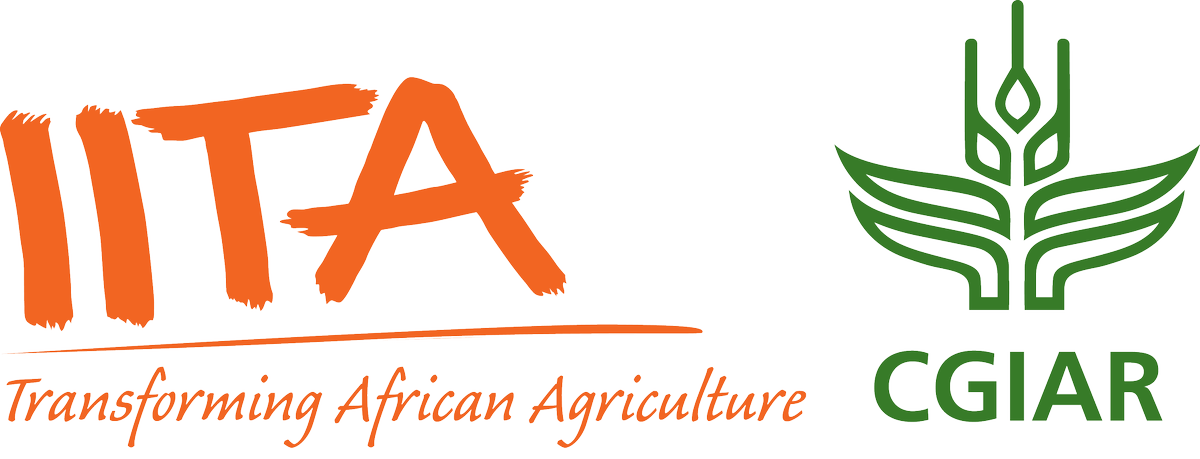-
Performance of Beauveria bassiana and Metarhizium anisopliae based biopestici...
The project aims to develop environmentally friendly management strategies to enable continued banana-plantain production in areas affected by banana bunchy top disease, by... -
Standard Operating Procedure (SOP) for phenotyping for BBTV resistance and PC...
Increasing breeding efficiency at BRIN -
Variation in pH of Beauveria bassiana and Metarhizium anisopliae based biopes...
The project aims to develop environmentally friendly management strategies to enable continued banana-plantain production in areas affected by banana bunchy top disease, by... -
Performance of Beauveria bassiana and Metarhizium anisopliae based biopestici...
The project aims to develop environmentally friendly management strategies to enable continued banana-plantain production in areas affected by banana bunchy top disease, by... -
Performance of Beauveria bassiana and Metarhizium anisopliae based biopestici...
The project aims to develop environmentally friendly management strategies to enable continued banana-plantain production in areas affected by banana bunchy top disease, by... -
Colony forming units of Beauveria bassiana and Metarhizium anisopliae based b...
The project aims to develop environmentally friendly management strategies to enable continued banana-plantain production in areas affected by banana bunchy top disease, by... -
Evaluation of colony forming units of Beauveria bassiana and Metarhizium anis...
The project aims to develop environmentally friendly management strategies to enable continued banana-plantain production in areas affected by banana bunchy top disease, by... -
Zero Hunger value addition training data for Togo, 2025
Same as previous description for Zero Hunger Project -
Survey of agricultural mechanization services in northern Ghana
Sub-Saharan Africa has the world’s lowest level of agricultural mechanization as 65% of farm power is provided by humans. Therefore, the Sustainable Farming Program of the CGIAR... -
Near-Field Communication-Enabled Digital In-Field Molecular Diagnostics
Development of point-of-care in-field molecular diagnostic tool for detection of CBSV in cassava fields -
Farmer's training on seedling and food production
The International Institute of Tropical Agriculture (IITA), under the Food Frontiers and Security Science Program (FFSSP), has been at the forefront of delivering safe,... -
Irrigated endline survey Plastic crates RCT experiment in Nigeria
A randomized experimental design project to reduce postharvest loss in Nigeria by improving access to innovative postharvest technologies and bundling with market linkages in... -
Validating Soy Use Case Advisory tool recommendations with farmers in the Chi...
Poor access to well-coordinated and informed advisory services, markets and lack of incentives are some of the factors that affect agricultural production in smallholder farming... -
Sustainable intensification of crop production per unit area of land
Productive arable land is shrinking in Malawi, exacerbated by population growth, climate change, and land degradation. This compounds the food crop production crisis that is... -
Co-develop Integrated soil fertility management in maize-legume cropping syst...
Smallholder farmers in Southern Africa, including Malawi, are affected by a myriad of issues that lower their crop and livestock productivity, from climate change, mostly... -
Evaluation of improved varieties of maize for the enhancement of agricultural...
Bioassay of parasitoids (natural enemies) of armyworms host range for biological control. -
Assessment of aflatoxins and heavy metals in Zingiber officinale (ginger) acr...
Assessment of aflatoxins and heavy metals in Zingiber officinale (ginger) across the value chain in Kaduna and Oyo states, Nigeria and the use of probiotics for aflatoxin... -
Maize Modelling Data, Agronomy, Kano
A 5-year development project titled; Kano State Agro-Pastoral Development Project (KSADP). The project aims to reach 450,000 smallholder farmers and enhance crop production and... -
Standard Operating Procedure (SOP) for phenotyping plantain and banana genot...
Screening for plantain and banana genotypes for resistance to nematodes -
Ghana Crop type labels 2023
Timely and accurate data on the extent of croplands and the types of cultivated crops are essential to addressing the food insecurity challenges that many African countries...
